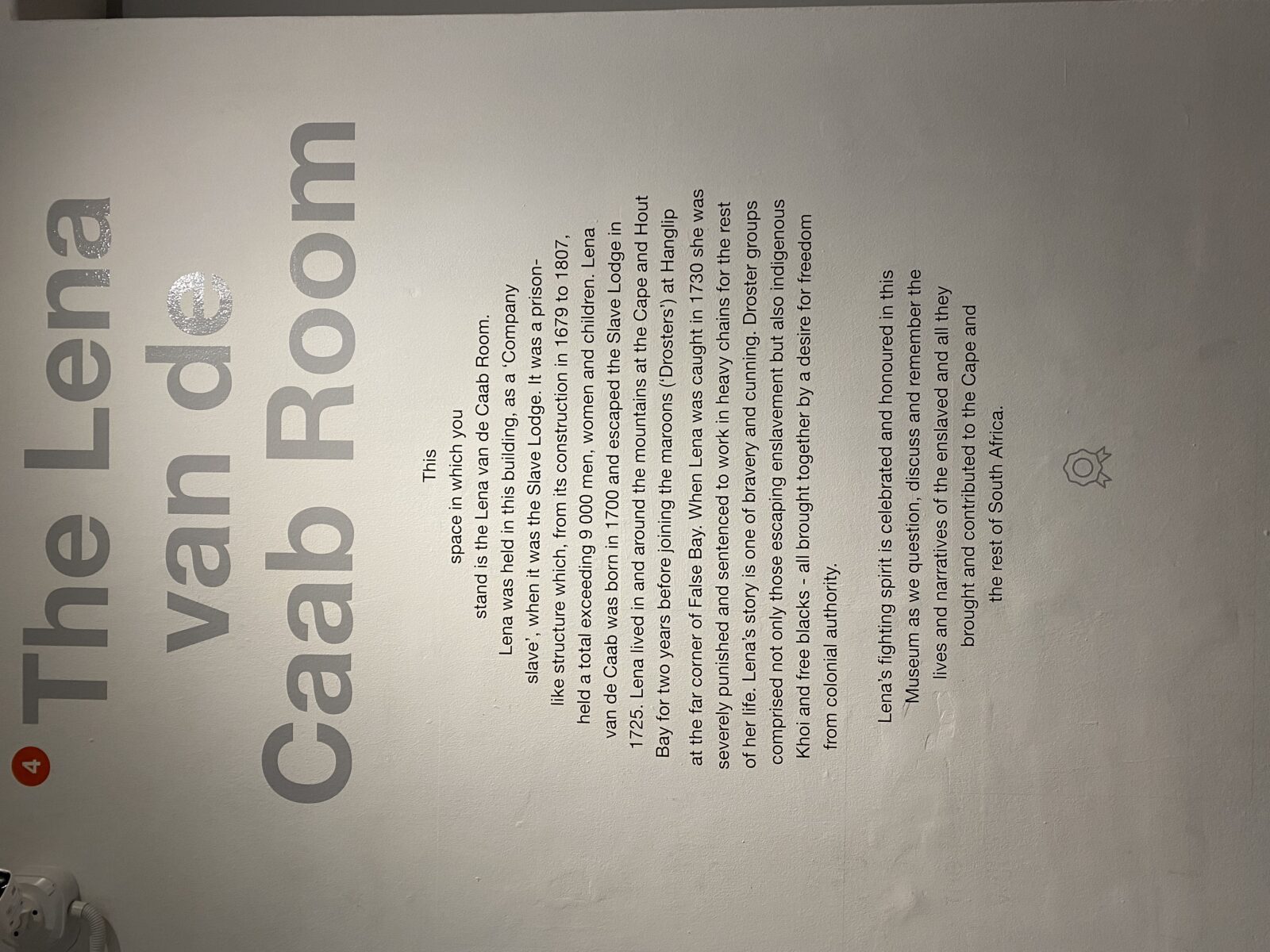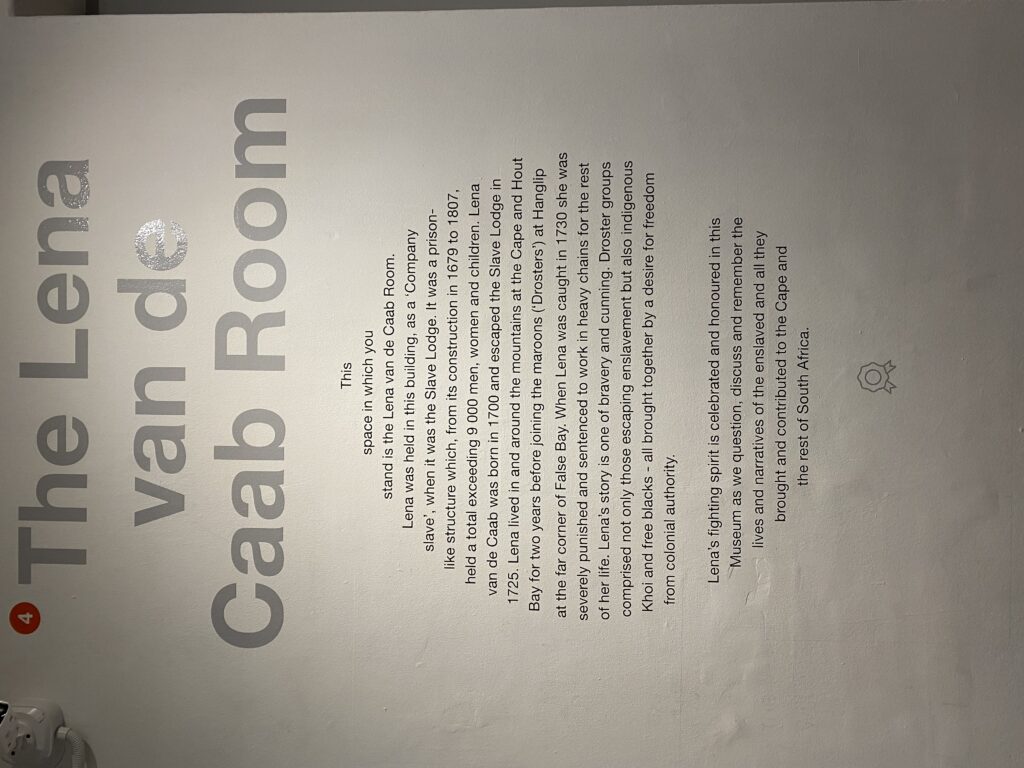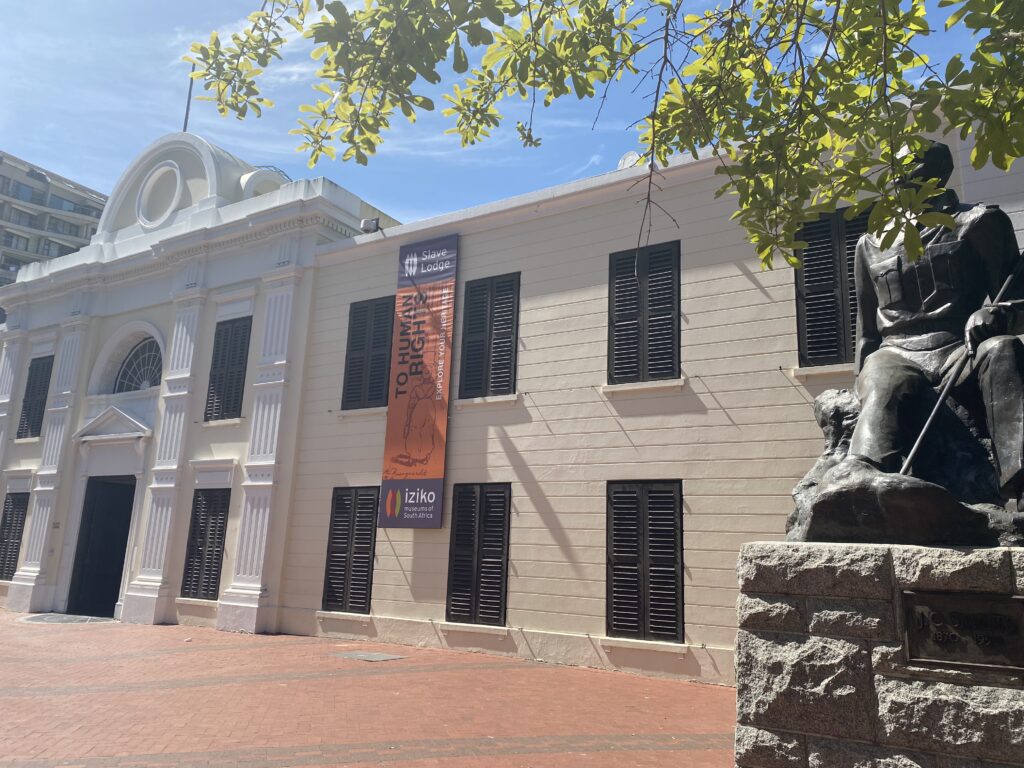When I was in South Africa at the end of my trip (which I will be blogging about soon!), I went to the Iziko Slave Lodge Museum in downtown Cape Town. It details the history of slavery in South Africa, in the very building where these enslaved people were held while they labored for the Dutch East India Company. Most of the enslaved people in South Africa were brought by the Dutch or the British colonizers from Southeast Asia and other parts of Africa.
One of the rooms in the museum was dedicated to a woman named Lena van de Caab. The last name ‘van de Caab’ would have been forced upon her, as it simply means ‘from the Cape’ in Dutch. There is virtually no information about her online, and thus no pictures. I had to go to the second page of Google results—unheard of—to even find mention of her, so this will be quite short.
Lena was born in 1700 and escaped from the Slave Lodge around 1725. She took to the mountains surrounding Cape Town and joined the ‘Drosters’ or ‘maroons’ a group of resistance fighters made up of runaway enslaved people, Khoi people (one of the indigenous peoples of South Africa), and free Black rebels. On the one page of information about her that I found online, it says she was instrumental in this groups’ plan to try to burn down the city and take control of it from the Dutch; however, the information I read in the museum is much less detailed. It only says that after living for years around Hout Bay (which I visited) and False Bay, she was caught in 1730, and sentenced to work in heavy chains for the rest of her life; a severe punishment.
The museum contained many narratives just like that of Lena; one of its missions is to ‘discuss and remember the lives and narratives of the enslaved and all they brought and contributed to the Cape and rest of South Africa’. The museum was very interesting and also soul crushing. Reading about all the pain and suffering caused by white colonizers was difficult, but it was also necessary: I think understanding the historical context of a country is just as important as seeing what that country has to offer, because in that way you can appreciate what you are seeing even more.
The museum said it strived to celebrate and honor the ‘fighting spirit’ of Lena and all the other enslaved people who fought for their survival and freedom, a very noble aim indeed.


